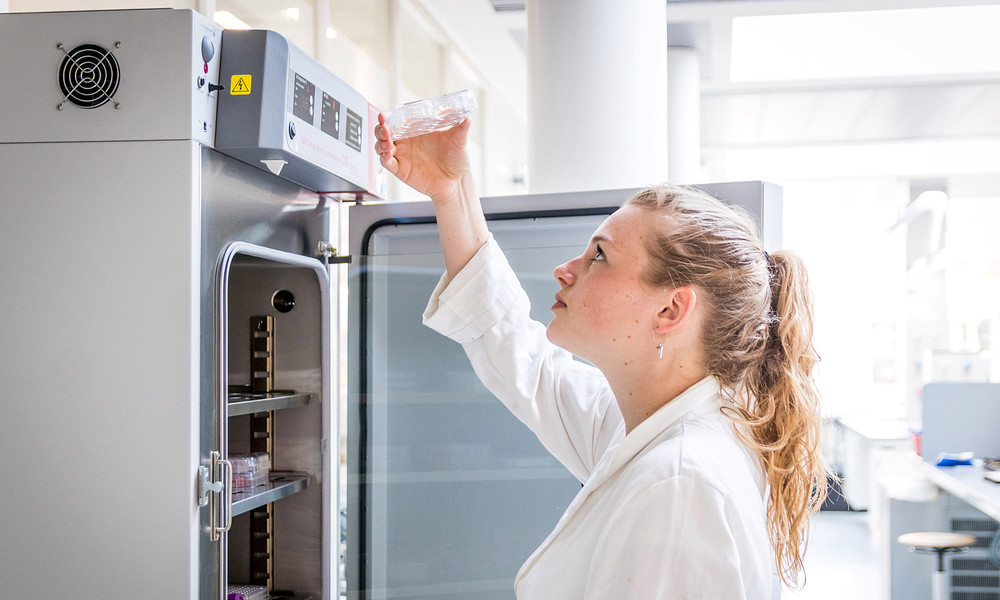Learn all about processes in the human body
- Minor
Learn all about processes in the human body

Does a career in Medical Biology appeal to you? Do you want to learn all about the biological processes that are going on in the human body? Apply for the minor Medical Biology!
During the programme Medical Biology you will learn about the cells in the human body and their different biological processes in more detail. For instance about the two major pathways for triggering the blood clotting cascade, the pathology of our kidneys and livers and how autoimmunity and vaccines work.
Besides the theoretical modules, there is a large project in the laboratory. These projects differ from student to student, but are strongly linked to ongoing health-related research at the Research Centre Biobased Econnomy (KCBBE). Examples are the development of cell-based bioassays, antimicrobial activity of anthocyanins and the study of signal transduction pathways linked.
| Title | ECTS Credits | Course code |
| Hematology | 5 | BOVH25HEMATOLOGY |
| Pathology | 5 | BOVH25PATHOLOGY |
| Clinical Immunology
| 5 3 | BOVH25CLIMMUNOL |
| Research project Medical Biology
| 15 8 | BOVH25RMEDBIO |
This exchange semester is open to students who have completed two or three years of a bachelor's programme in the field of (molecular) Biology, Biotechnology or Biochemistry, or comparable. We also require a CEFR level of B2 or higher.
For questions about the content of this exchange programme, please contact the coordinator via the 'Contact & FAQ' tab above.
Are you a student at Hanze University of Applied Sciences? The minor is accessible for students from the Biology and Medical Laboratory Research programme who have aquired 60 EC from the propaedeutic phase and 48 EC from the main phase. You can sign up via Osiris, up to 4 weeks before the start of the minor.
Third year students from a programme in (medical) biology from another university or university of applied sciences can apply for this minor via the website Kies op Maat: www.kiesopmaat.nl.

Docent
How satisfied are you with the information on this page?